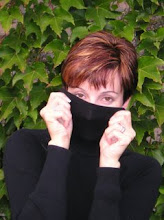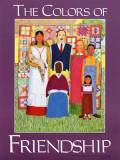December 24
"Adoration of the Magi", by Giotto di Bondone (1267-1337)
Note that the star appears as a comet above the Christ Child.
Giotto witnessed an appearance of Halley's Comet in 1301.
There Shall be a Star of Morning Gleams
from the unfinished oratorio "Christus", Op. 97
by Felix Mendelssohn
and performed by Ex Cathedra
Jakob Ludwig Felix Mendelssohn Bartholdy, known as Felix Mendelssohn, was a German composer, pianist, organist and conductor of the early Romantic period. Although he was born into a notable Jewish family, his parents turned away from their faith, and raised young Felix without religion. He was later baptized as a Reformed Christian. He was recognized as a musical prodigy at an early age, but his parents were careful, and resisted capitalizing upon his remarkable talent.
Mendelssohn had what were considered to be "conservative" musical tastes, and he blended characteristics of Bach, Handel, Mozart and Beethoven with those of more contemporary composers. After enjoying a great deal of success in Germany, he travelled throughout Europe, and was then very well received in Great Britain, where he toured on ten occasions. He was greatly admired, and then befriended, by Queen Victoria and Prince Albert.
As with so many great artists, Mendelssohn had a highly sensitive temperament, and frequently worked himself into states of extreme nervous exhaustion. During his life, he was known as "The Discontented Polish Count", and he referred to this epithet in his own letters. After his death, however, the family made a concerted effort to promote the image that he had always been a happy and equable person. This was apparently not the case at all, a great deal of the time.
His strange and inappropriate behaviour may actually have been a symptom of the health problems that would lead to his premature death. He often flew into fits of rage that would end with his physical collapse. Eduard Devrient wrote his recollections of Mendelssohn in 1869. Apparently on one occasion in the 1830s, Mendelssohn's wishes were not obeyed, and the result was that "his excitement was increased so fearfully... that when the family was assembled... he began to talk incoherently, and in English to the great terror of them all. The stern voice of his father at last checked the wild torrent of words; they took him to bed, and a profound sleep of twelve hours restored him to his normal state."
It would seem that Mendelssohn was perhaps suffering a series of small strokes, and it was this affliction that eventually ended his life at the age of 38, on November 4, 1847.
"Christus" was the title given by Mendelssohn's brother Paul to fragments of an unfinished oratorio, which was published posthumously as Op. 97. The German libretto was taken from Biblical sources by Karl Josias von Bunsen. Mendelssohn began composing the work in 1846, and continued with it during his final year. "Christus" was first performed in 1852.
The libretto of "There Shall be a Star of Morning Gleams" is linked to the star prophecy, which is found in the Book of Numbers, chapter 24, verse 17:
I shall see him, but not now: I shall behold him, but not nigh: there shall come a Star out of Jacob, and a Sceptre shall rise out of Israel, and shall smite the corners of Moab, and destroy all the children of Sheth.
Most likely, this prophecy was originally intended to refer to an event in the immediate future. But by the time of the New Testament, early Christian theologians were connecting it to the Star of Bethlehem, which is mentioned in the Gospel of Matthew, chapter 2, verses 2-11:
Now when Jesus was born in Bethlehem of Judaea in the days of Herod the king, behold, there came wise men from the east to Jerusalem,
Saying, Where is he that is born King of the Jews? for we have seen his star in the east, and are come to worship him.
When Herod the king heard these things, he was troubled, and all Jerusalem with him.
And when he had gathered all the chief priests and scribes of the people together, he demanded of them where Christ should be born.
And they said unto him, In Bethlehem of Judaea: for thus it is written by the prophet,
And thou Bethlehem, in the land of Juda, art not the least among the princes of Juda: for out of thee shall come a Governor, that shall rule my people Israel.
Then Herod, when he had privily called the wise men, enquired of them diligently what time the star appeared.
And he sent them to Bethlehem, and said, Go and search diligently for the young child; and when ye have found him, bring me word again, that I may come and worship him also.
When they had heard the king, they departed; and, lo, the star, which they saw in the east, went before them, till it came and stood over where the young child was.
When they saw the star, they rejoiced with exceeding great joy.
And when they were come into the house, they saw the young child with Mary his mother, and fell down, and worshiped him: and when they had opened their treasures, they presented unto him gifts; gold, and frankincense, and myrrh.





























No comments:
Post a Comment